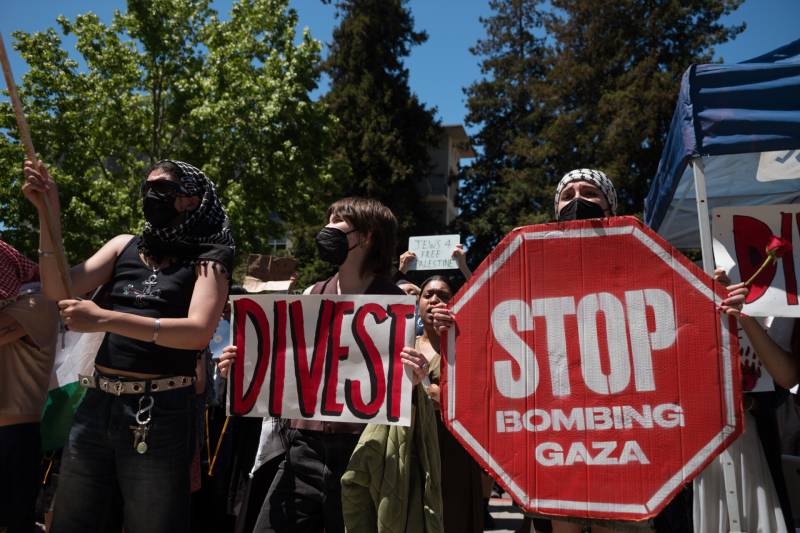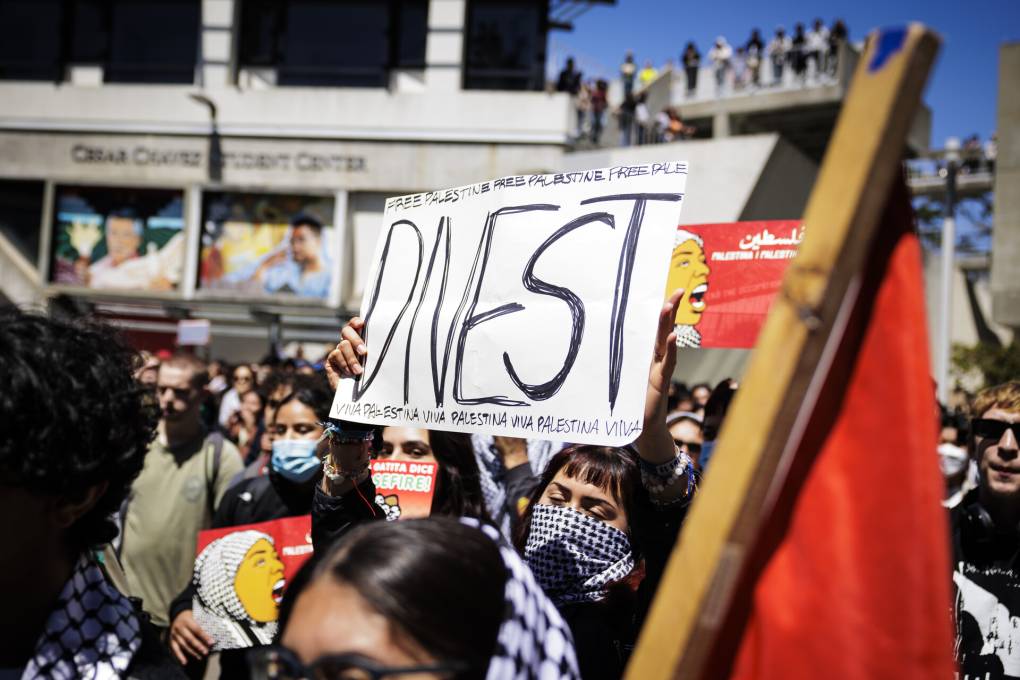Union leaders on Friday called on academic workers and researchers at UC Santa Cruz to walk off the job starting Monday, which is likely to be the first of a series of strike actions from union workers at the University of California campuses.
The strike announcement comes just days after members of UAW 4811, which represents about 48,000 graduate students and academic workers across the University of California system, voted to authorize a rolling strike in response to the university system’s recent handling of pro-Palestinian protests on campuses.
“We’re now calling on the first UC campus to stand up,” UAW 4811 President Rafael Jaime said in a video, urging all UCSC members in the union to stop any academic teaching and research work starting Monday. He did not say how long they would be on strike, though it could last through June when the school term ends.
“And for everyone else across the state, stand by and prepare to stand up if your campus is called,” said Jaime, who is also a Ph.D. candidate in UCLA’s English department, at the end of the video.


